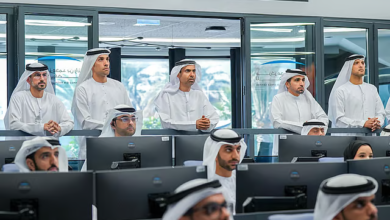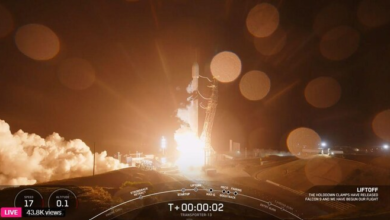China’s Artificial Intelligence Race: Investments, Robotics, and the Future of Innovation

Key Takeaways:
- China is investing heavily in artificial intelligence (AI) to become a global tech superpower by 2030.
- AI applications, including robotics and educational tools, are transforming everyday life for children and professionals.
- A rising number of AI companies, including DeepSec, are challenging the US’s dominance in the field, with substantial investments driving innovation.
- The Chinese government is committed to AI development, focusing on education, technology, and the young workforce to accelerate its goals.
China’s AI Revolution: A Glimpse into the Future
In Beijing, eight-year-old Timmy is seen playing chess with a robot, which he regards as a teacher or friend. The robot, which lives in his apartment, helps Timmy improve his game, encouraging him after each move and providing new challenges. This scenario is more than just a personal interaction—it represents China’s rapid and strategic embrace of artificial intelligence (AI), a critical part of its vision to become a global technology leader by 2030.
AI is already shaping everyday life in China, from children interacting with robotic toys to schools integrating AI into their curriculums. The country’s AI ambition began to gain traction with the release of DeepSec, an AI chatbot that demonstrated China’s growing capabilities in this space.

The Role of AI in China’s Economic Landscape
China is currently facing significant economic challenges, but its investment in AI is seen as a solution to fuel future growth. The government is driving massive investments, both private and public, to foster innovation and reduce reliance on foreign technologies. Already, over 4,500 companies in China are involved in AI production and sales, and AI-related courses are being introduced in schools across Beijing. In universities, the number of students pursuing AI degrees is growing as part of the government’s effort to equip the next generation with critical skills.
While the global competition in AI is fierce, China’s young, skilled workforce is one of its greatest assets. In 2020, 35 million Chinese students earned degrees in science, technology, engineering, and mathematics (STEM), surpassing all other nations. This talent pool is expected to drive the country’s AI sector forward, supported by a vast infrastructure that fosters innovation.
AI Innovation for the Next Generation: A Personal Touch
For many Chinese families, AI is not just about technology; it is part of raising children for the future. Timmy’s mother, Yan Xiu, believes that her son must learn about AI early. “We cannot reject it. Our children need to learn it as soon as possible,” she says. She invested $800 in the robot, which plays chess and other games with Timmy, helping him build critical thinking and problem-solving skills. For Yan, this is an essential investment in her son’s future.
China’s AI companies are continually improving their products. For example, DeepSec, a Chinese AI company, has recently gained recognition for its remarkable capabilities, which rival global leaders. Its ability to compete with AI products like OpenAI’s ChatGPT has garnered attention worldwide, particularly in Silicon Valley. The company’s rapid development has shown that despite external pressures, including trade restrictions, Chinese AI is advancing at an unprecedented pace.
Challenges and Global Perception: Ethical Concerns and Competition
Despite the rapid growth and innovation, China’s AI advancements are not without controversy. As China’s AI companies like DeepSec push boundaries, concerns about privacy, data security, and potential misuse of technology have emerged. The country’s large population and data accessibility give it a significant advantage in developing AI, but this has raised alarms in the West, especially regarding the Chinese government’s ability to access personal data.
While some countries, like the United States and South Korea, have imposed restrictions on Chinese AI apps, China continues to build its AI capabilities, with plans to deploy human-shaped robots to assist elderly care and public services. The government’s long-term vision focuses on self-reliance in technology, particularly after the imposition of tariffs on Chinese goods by major trading partners.
An Islamic Perspective on Technological Development
From an Islamic viewpoint, the development and use of technology, including AI, should be approached with wisdom and ethical responsibility. Islam emphasizes the importance of innovation for the betterment of society while ensuring that technological advancements do not harm individuals or communities. The Quran teaches that knowledge should be used for good, as stated in Surah Al-Baqarah (2:269), where Allah (SWT) says, “He gives wisdom to whom He wills, and whoever has been given wisdom has certainly been given much good.”
As AI continues to shape global economies and societies, Muslims must reflect on its ethical implications and the potential for good or harm. This calls for a balanced approach, where the benefits of AI are maximized while minimizing its negative consequences. Ensuring that AI serves humanity in a way that aligns with Islamic values of justice, fairness, and compassion is crucial.
Conclusion: China’s AI Ambitions and the Path Forward
China’s rapid rise in the AI sector is a testament to its strategic planning and substantial investments in technology. As the nation navigates the challenges of global competition, it is clear that AI will play a pivotal role in its future economic and social landscape. However, as this technological revolution unfolds, it is essential to keep in mind the ethical considerations that must guide its development.
In the spirit of Islam, technological advancements should be used to benefit society and uplift the lives of individuals, ensuring that these innovations promote justice and are used in ways that align with the values of respect and dignity. As China continues to lead in AI, the global community must also engage in dialogue about the responsible use of technology, ensuring that it serves the common good for all.
Keywords: China AI, Artificial Intelligence, DeepSec, Robotics, Technology Innovation, Islamic Perspective, Ethical Technology, AI in Education, AI Development, Islamic teachings on Technology.
- Source: BBC NEWS








